#quillpete
Text
i’m back! (sort of)
hello! about three years ago, i used to have a blog (most recognizably under the name of “quillpete”) that centered around star wars and marvel. my blog grew to be pretty large and i got quite good at making creations (mostly gifs and stuff!)
once i started school again, however, i grew extremely busy and couldn’t keep up with my blog nearly as much as i used to. i quickly started to lose followers and, after a few months, i deleted my blog completely.
after reflecting upon this, i’ve decided to make a new tumblr blog for funzies because my love for star wars is once again growing. i won’t be creating any gifs or creations, but i will be reblogging posts and perhaps occasionally writing some text posts, analyses and opinions! i want to keep this low key because i’m still a very busy lady (more than i can handle sometimes lmao), but if you recognize my past blog name and/or want to join me on my new journey, feel free to give me a follow! i may follow back!! :)
-gabby <3
1 note
·
View note
Photo



If anyone reads this when I have passed to the big bad beyond, I shall be posthumorously embarrassed. I shall spend my entire afterlife blushing.
for @princessdiarist
#swedit#carriefisheredit#leiaedit#swnews*#theforcesource#obiwaen#expelumos#dailyoriginaltrilogy#obwian#stardustshinji#quillpete#stripperanakin#this is called aesthetic shitposting#and isn't going to get any notes but thats okay because i had fun making it#sw: ot#carrie fisher#people#*m#*urls#hazel does urls#1k#2k#3k#4k#5k#6k
7K notes
·
View notes
Photo



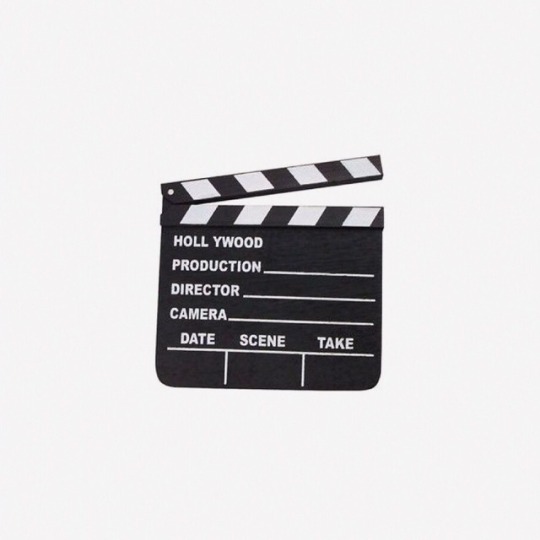





moodboard: @darkljng asked » chris pine or tom holland
❝ Whenever I do something super badass, something stupid always follows. I’m never quite cool, if you know what I mean. I’m basically the worst, best superhero.❞
#tom holland#thollandedit#dailytomholland#spideycentral#marvelcastedit#tomhollandedit#tomhollanddaily#thomashollanddaily#dailyspiderman#dailymarvelkings#userhazel#userpatricia#nzagul#quillpete#pggycarters#userchristy#parkerpete#useramilyn#my edit#moodboard
431 notes
·
View notes
Photo
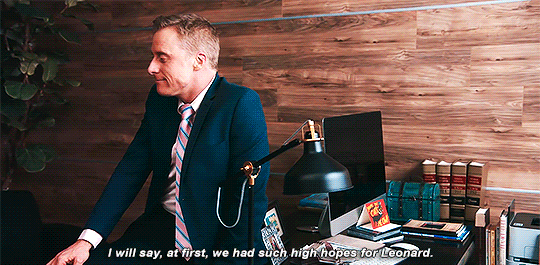


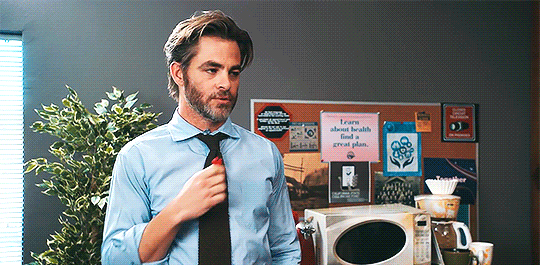

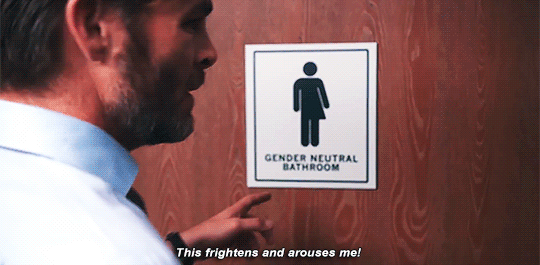
If Congress was your co-worker — Starring Chris Pine
#cpineedit#trekcastedit#trekcastdaily#cpinedaily#pineedit#dccastedit#dceuedit#dceucast#obwian#quillpete#bottomkirk#stripperanakin#my edit#chris pine#this was so funny omg#and sadly accurate#rip american democracy#people#1k#5k
8K notes
·
View notes
Photo








peter parker in the spider-man suit
#spiderman#spiderman homecoming#marvel#marveledit#mcuedit#bimblebubblefam#parkerpete#nataliesroyalfamily#quillpete#spideycentral#theresistancenet#chewbqcca#useraiden#nargles squad#mine#gif#gifs#creations
4K notes
·
View notes
Photo

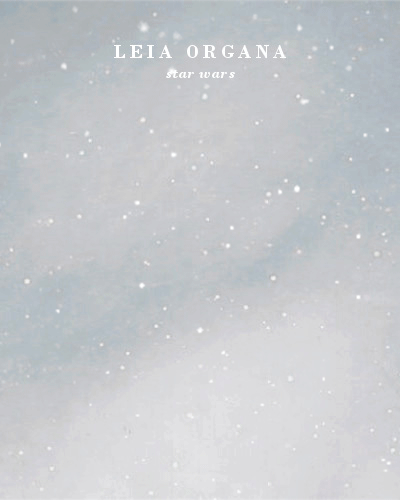




endless list of favourite female characters [6/∞]: leia organa
“You have your moments. Not many of them, but you do have them.”
#star wars#swedit#leia organa#leiaedit#women of star wars#character poster#aesthetic#my edit#belinaedits#theresistancenet#useraiden#obwian#amidqlas#shirtlesscaptain#quillpete#stripperanakin#skyvalker#aragonr#thewincheters#delacourr#lejaorgana#goldweasley#kcenobi#sirjsblack#siltheryn#persrephone#persepone#userskywalkeranakin
1K notes
·
View notes
Photo





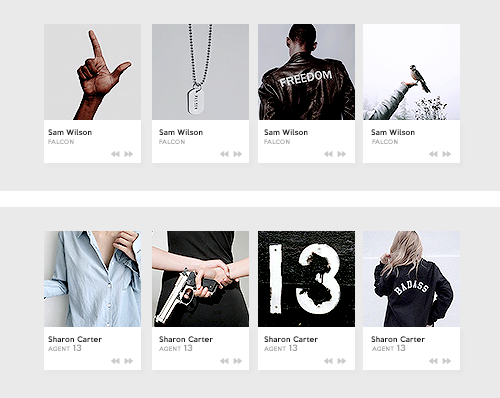
MCU → Favorite Characters
#mcuedit#marveledit#fyeahmarvel#blakelivey#quillpete#anthvnystcrk#tony stark#cap#thor odinson#loki laufeyson#james rhodes#peter parker#natasha romanoff#clint barton#wanda maximoff#peter quill#sam wilson#sharon carter#*#500#1000
2K notes
·
View notes
Text

wallcrawlers - a playlist inspired by peter parker, his friends, and homecoming in general
(link opens to the playlist on my spotify)
tracklist:
left hand free // alt j
second guessing games // colony house
say my name // TEAM*
all time lows // hellogoodbye
feel it // otherkin
human war machine // TEAM*
death cream // the shins
upside down & inside out // ok go
19-2000 // gorillaz
bait and switch // the shins
this head i hold // electric guest
big brat // phantom planet
i like it // TEAM*
walking the dog // fun.
diane young // vampire weekend
here it goes again // ok go
structo // flake music
half a million // the shins
every day // voxtrot
holland, 1945 // neutral milk hotel
(img source)
#mine#playlist#character playlist#peter parker#marvel#spider-man#tom holland#spider man: homecoming#quillpete#spiideysenses#obwian#gounderoos#delacourr#bottomkirk#bradleeyjamess#jessdowney#chuckxavier#extraordinaryxmen#magzneto#snoji#stripperanakin#hiddlescheekbones#mjwatson#peter parker playlist#marvel playlist#spider man playlist#prior.playlist
278 notes
·
View notes
Photo


#wonder woman#diana prince#wwedit#kyolren#amilyn#winteerfell#quillpete#katebishcp#mine*#obiswan#ww#wonderwoman#dc#dcedit#dceu#my edits#typography#dianaprinceedit#dceuedit#lordstark#reyskvwalker#wondersource
995 notes
·
View notes
Photo
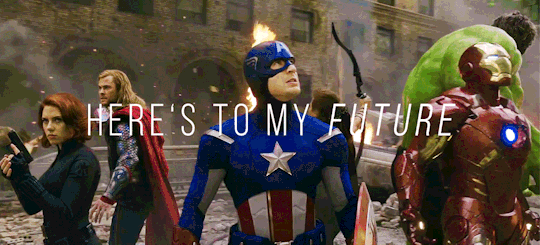

No tomorrow without a yesterday
Here’s to my future
Goodbye to yesterday
#steve#steve rogers gif#these look so bad ohmygod#oscorp#thomashclland#reyvnolds#infinityparker#gwen-parkers#107th#quillpete#mine#dailymcugifs#dailymcuedits
255 notes
·
View notes
Text
a comprehensive character creation guide
by kate (aka angelprior)
hello all! this is going to be a very very long post, so i’ve put the meat of it under the cut, but recently i’ve embarked on a journey of severely in-depth characterization for the book i’m co-writing. i thought it would be helpful to both myself and any fellow writers out there to construct a complete and comprehensive set of questions by which to flesh out a character. this guide has over 200+ questions to help you get to know your character better, and to keep your character consistent throughout the story. it’s a great guide to save and come back to throughout your writing process; i’ve organized it into 10 categories (some with sub-categories for better accessibility) and have included some awesome resources that will hopefully help you along the way. this has been constructed with some assistance (i’ve done my best to give credit where credit is due, but if you find the source for something in this guide that is uncredited please let me know so i can give proper credit or take it down) and based off of some help i’ve gotten from past teachers in high school. this guide is solely based on characterization, so if you’re looking for some plot development guides you might have better luck elsewhere (although i have found that a deeper understanding of your characters helps a TON with plotblock). this guide can be used for original characters, both fantasy and real-world based, as well as rpg characters or helping you understand a character better for a fanwork. it can also be used to help you study a character you may be playing as an actor! (there are not necessarily too many fantasy-element based questions, but there are places where you can use whats applicable in your fantasy realm in place of real world alternatives, its all very open ended.)
tl;dr, here is a guide of over 200 questions to help you become one with your characters, i hope you find it helpful and educational. thank you for your time.
Character Basics & Physicality
okay, its time to flesh out the basics. knowing exactly who your character is will always begin with their very first formation. when you picture your character in your head, what do you see? you see their body, maybe their aura. likely you already have a name picked out. the vision you first get is their essence. mapping out a characters basic information and body structure is really only the skeleton of what your character can be. getting beyond these basics and adding more to their existence will make them more dynamic and relatable. humans, after all, are much more than we see on the surface. but that surface impression is a great place to start. think of this section as the “what my coworkers know about me” section, facts that can be gleaned through observation or light questioning. things someone would include in a bio, or put on an official document. a great resource for a quick bio page (one that was a HEAVY influence on this questionnaire) was this no-effort character sheet pdf by justsomecynic. i found it amazingly helpful, and they made an awesome printable pdf, so you can have a quick guide to your character ready when you need it!
the following is split into two categories, basics & physicality. if you feel the need to add extra sections to cover something i missed, throw them in!
Basics
1. Full Name (this one is simple. be sure to include all names your character might have, and if you want, look up definitions of those names, or add what significant events led to your character having said names.)
2. Past Names (this is where you would include any names your character has been known by, either in previous points of your story or before it officially starts. think maiden names, names before transitioning, titles they may have lost, etc.)
3. Ethnicity (heritage is key! if you’re a boring mystery white american like me, your ancestry may have little to no influence on you, but for many others their ethic identity is in credibly influential on how they lead their lives, and how they’re treated. keep in mind: if you are writing for a character of a differing ethnicity from yourself, please do the proper research on what it’s like to live in that culture. obviously this applies to real world cultures, i’m sure none of us know any elves or mages that we could talk to, but if your character is real world based and does not share your cultural experiences, please make sure to connect with people who are actually of that ethnicity and reflect their narrative of living. it will save a lot of hurt, and your work will magnify in quality. please remember general human kindness when constructing any character.)
4. Age (again, straightforward, but if we see your character at multiple ages throughout the story, give a range.)
5. Sexual Orientation (if your character is written to feel a certain way but identify as a conflicting sexuality, write both what your character may be and what they think themselves to be. for example, i have a character that is written as asexual and has textbook asexual feelings, but never comes to terms with her asexuality and continues to identify as heterosexual. again, keep in mind your depiction of groups you do not belong to. my character is ace because i am ace, and i’ve written her to match the narrative of my experiences. but when it comes to my bisexual character, i’m constantly drawing advice from my bisexual friends and other resources to help form a more accurate narrative. be mindful, y’all.)
6. Gender Identity (same as above)
7. Employment Record (include any jobs your character worked both before the story and during. write it like your experience record on a resume!)
8. Criminal Record (character ever got caught breaking a law? served time? minor infraction? accomplice to murder? parking ticket? put it all here!)
9. Birth-date, Time, and Location (you may want to orchestrate this based on your characters birth chart, which we will get to, but make sure to include all circumstances under which your character came to be. not a natural birth? how did they come to exist?)
10. Professional Affiliations (this is a very career oriented segment, but basically this is where you would list some significant professional achievements. an md if they’re a doctor, a certified judge, minted military, ceo status, anything of that nature. the kind of stuff you’d have on a fancy plaque on a door.)
Physicality
consider this section the body basics. these are all things you would notice upon first glance or further study, things a doctor would learn in a routine checkup, things to look for in an actor or faceclaim.
11. Build (what is your character’s body type & build? this heavily affects diet & exercise.)
12. Height (range if it changes)
13. Weight (range if it changes)
14. Eye Color (here’s a cool chart if you want to get technical with your selection!)
15. Hair
15a. Color (natural and artificial)
15b. Length (range if it changes)
15c. Style (put together a folder of some reference pictures on any styles your character has)
15d. Texture (not all hair is the same consistency! ethnicity plays a role in this. make sure your characters hair type/texture matches their heritage.)
16. Markings (this can be any number of things. tattoos, scars, birthmarks, skin conditions, etc. map them all out on a body model and keep a reference of the design & location of any tattoos, and what they mean to them! tattoos are purposeful & tell a story, write it.)
17. Physical Disabilities (if your character is not able bodied, what is their diagnosis? please do not write characters with disabilities if you have not researched the disability itself and gathered a narrative from folks who have it! with proper research, characters with disabilities are amazing and dynamic and bring representation we sorely need, but without accurate portrayals they become tokenized or stereotypical, and often written in a very ableist fashion. please! be! mindful!)
18. Posture (how does your character sit or stand and what affects this? for example characters with huge boobs will have horrible posture because of all the extra weight. characters raised in high society might have had excellent posture ingrained in them. keep in mind why your character is constructed the way they are, there’s a reason for everything.)
19. Gait (gait is a person’s manner of walking. is it confident? wonky? quick? slow? describe what it is and why.)
20. Vocal Quality & Tone (what does your characters voice sound like and what is their general tone? do they have resting bitch voice? do others find their voice high pitched and annoying?)
21. Volume & Speech Level (are they generally soft spoken or abrasively loud? does this change depending on their environment or remain the same?)
22. Exercise Regimen (does your character keep their body in shape? how so and how often?)
23. General Health
23a. Diseases (has your character ever contracted/been diagnosed with a disease? research & accurately portray! mindfulness!)
23b. Eating/Weight Disorders (does your character have an eating disorder? an issue gaining or loosing weight? research & accurately portray! eating disorders are real, painful issues that deserve to be treated with respect. mindfulness!)
23c. Dietary Habits (what does your character consume? if you want, design a meal plan for a typical week in their lives. do they try to be healthy or eat whatever they want? any food allergies?)
23d. Allergies (anything your character is allergic to?)
24. Body Language (what does your characters body language look like in the following situations?)
24a. Upon First Meeting
24b. When Discomforted
24c. When in Love
24d. Average/Resting Behavior
24e. Type of Laughter
24f. Type of Cry
25. Appearance Through Physicality (on a scale of 1 to 10, 1 being the first word and 10 being the second, highlight the number that most accurately represents what your character would present through their physicality. for the first one, for example, just by looking at your character, would they seem more unkempt or meticulous? maybe they fall somewhere in the middle, perhaps a five or six.)
25a. Unkempt 1 2 3 4 5 6 7 8 9 10 Meticulous
25b. Timid 1 2 3 4 5 6 7 8 9 10 Confident
25c. Harried 1 2 3 4 5 6 7 8 9 10 Callous
26. Physical Traits Developed Through Customary Activities (does your character have a physical action they’ve done so many times it’s become an integral part of their physicality? for example, when i was in elementary school other kids used to make fun of me for being short. so to make myself seem taller, i started walking on my toes. i did that so much for so long that now i walk wrong. when you step, you step with your heel first, but because i spent so many years walking that way, i step with my toes. it’s changed the makeup of my body! there are other things that have similar effects. for example, my character is a dancer, so she moves with much more grace and fluidity than others. a character also could have had a past injury, that caused them to be tender with certain movements, have a limp, etc. include all these kinds of things and why they came to be.)
Personality & Social Status
this one gets a little more complicated. here we’ve got 8 subcategories, because personality really can’t be fit into something so small. the full complexity of human beings will always be a fascinating study, and it is my belief that it’s why we create art. i believe that characters are written to show us things, reveal parts of ourselves, and help us gain a higher understanding of what it means to be human. this philosophy shines its brightest when characters are written with full fledged unique personalities. they become human to us when they have likes and dislikes, successes and flaws. personality is what helps a character become real, instead of a plot device wearing the clothes of a human being. your story will have ten fold its intended impact if it contains characters audiences can care about, and we seldom find time to care about two dimensional people. put as much as you can into this section. the more things you can think about, the better. make huge lists in response to these questions, especially about specific things! trying to decide what music your character would listen to? make a damn playlist! gather photos, come up with stories to add reason, put in as many little details as you like. every anecdote and arbitrary preference brings your character one step closer to the truth of being real.
Personality
27. Comforts (what things in life make your character feel comfortable and safe? people? places? textures? sounds? media? smells? anything! bonus: vividly describe their “happy place”.)
28. Vices (what are things your character can’t live without? any real and chronic addictions, like drugs or alcohol? unhealthy obsessions? things they can’t stop fangirling over? can’t go to work without a mocha?)
29. Personal Awareness (how well does your character know themselves? do they know exactly what they like? are they aware when they’ve made a mistake? do they have clear goals?)
30. Confidence Level (how confident is your character in their identity? presentation? behavior? choices? abilities?)
31. Temperament (how quickly are they angered? and by what? are they generally angry?)
32. Career Goals (in a perfect world where everything is achievable, what would be the one thing, or many things, they would want to do in their preferred line of work? what would they like to do in their imperfect world?)
33. Preferred Area of Study (what types of education are they enthusiastic about? have they done much in those areas?)
34. Educational Background (describe their entire schooling and education. list special achievements.)
35. Mental Disabilities (has your character ever been diagnosed with a mental illness? are they concerned they might have one, or have been written to have one, but not received an official diagnosis? describe and portray accurately. again, i cannot stress this enough, even if it is for a piece of fictional, fun writing, it is never okay to disrespect marginalized groups of human beings that you do not belong to. as i said before, representation is fucking important, but if you are not a member of the group you are not of the authority to portray their existence in any way you see fit. there is nothing wrong with having disabled characters. we need more of them. we need to bring visibility to them. but we cannot do so without their voices. it’s their lives, their narrative. do your research. talk to people. do everything you can to get feedback on your character and portrayal. be an advocate for representation, not a voice for stereotypes and bigotry. it is not hard to get assistance. again, your quality will magnify. lastly: please remember that folks with disabilities of any kind (i have seen this most commonly with mental illness but it happens frequently for others as well) are just as human as any able person. their disabilities (or rather our disabilities, i do belong to this group) do not make us any less human or real. don’t use us as a plot device. don’t use our illness as a plot device. we are human, we deserve to be written with clarity and respect. (okay i think this is the last time i will rant about this but NO GUARANTEES))
Inclinations
describe your characters behavior, both in physicality and activities, when in the following situations in detail.
36. When Content
37. When Aggravated
38. When Inebriated
39. When Insulted
40. When Attacked
41. When Praised
42. When Concerned
43. When Suspicious
44. When Trusting
45. When Ecstatic
Affectations
46. What They Lead People to Believe About Themselves (what kind of behavior does your character take on to present a certain image? what is that image? why is it important that they uphold that image?)
47. What They Do To Preserve Their Integrity (how do they act to keep up with their moral beliefs? what do they do to make it known to others that their integrity is intact?)
48. How They Hide A Lie
49. How They Present The Truth
50. Wardrobe
50a. How They Dress
50b. What it Signifies to Them
50c. What They Wish To Communicate Through Their Wardrobe
51. Possessions
51a. What Prevalent Possessions are Owned
51b. What it Signifies to Them
51c. What They Wish to Communicate Through Possessions
Preferences
feel free to get super detailed here! make extensive lists of specific things, compile photos, booklets, anything. make moodboards! make playlists! archives, anything! have fun with this bit. give your character if somewhat unnecessary flair. you may never end up putting much about these facts in your stories, but you never know what might come up! these are the kind of things that make people people. we’ve all good random interests we’ve gathered along the years. if you want to go even more in depth, come up with anecdotes about how your character came to love these things. if you feel there’s something in one of these categories your character would despise, or more than one thing, list those out too!
52. Activities (both to observe and perform)
53. Genres and Art Types
54. Food and Drink
55. Colors and Aesthetics (do they prefer warm tones or cool tones? designs with grecian influences? just really into things that remind them of clowns?)
56. Locations (both to be and to visit briefly, big or small scale)
57. People (both in their life, famous, or fictional)
58. Music
59. Literature (not restricted to “fancy books”, just writing pieces)
60. Media (films, television, comics, other)
61. Method of Transportation (both as a passenger and as a performer)
62. Method of Relaxation
63. Sights
64. Smells
65. Sensations (touch, motion, textures, i.e. skin to skin, roller coasters or swings, soft velvet)
66. Humor (what style of humor do they find the funniest? i.e. dry, political, situational, slapstick etc)
Distastes
a bit different than preferences, these would be categorically things that your character would find very difficult to put up with, instead of generally disliking. for example, when it comes to things like colors, we often have likes and dislikes based purely on opinion. i hate the color red. there’s no reasoning behind it, i just don’t like it as a color. so if your character dislikes a certain band because they find them annoying, or doesn’t want anything to do with circus themes, it would fit better above. but as with the following categories like archetype of person, there is usually very much a reason behind having disdain for a certain grouping of behaviors, so it would go below.
67. Situations (whether it be social or physical)
68. Phobias
69. Archetype of Person (to clarify with this one; the purpose here is to profile, in essence, a grouping of behaviors that together are upsetting for your character. archetype means embodiment, so basically here you would describe the “embodiment” of what your character’s “nightmare human” would be. there are common archetypes in fiction, so you could bounce off of some of the established ones, or you could build your own from scratch. this isn’t intended to open up prejudice, although if your character is for example a prejudiced villain this could be the section to put those details in.)
70. Interpersonal Behaviors (what are some behaviors your character sees happening between other people that they find deeply reprehensible?)
71. Sensations (any feelings or experiences to do with the senses that cause your character extreme discomfort and why)
72. Miscellaneous (any other things that are really upsetting to them!)
Social Environment
fill out the following seven questions for each of the three stages of life for your character. once for childhood, once for adolescence, and once for adulthood.
73. Residences (be exact. describe the buildings and situations in as much detail as possible, right down to floor plan and the neighbors.)
74. Familial Unit
75. Familial Dynamic
76. Social Class
77. Significant Events
78. Relevant and Recurring Behaviors
79. Development of Maturity
Economic Class & Power Placement
unless your character happens to exist in some magical world where economics and social class are nonexistent, its likely you’ll need these next couple of sections. while they might not constantly bear relevance to the plot line or even be mentioned, it’s very important to know where your character stands when it comes to money and power. where we are in the social ladder so to speak has a very important role in our personal development, and can reveal quite a lot about your character. make sure to keep in mind any events or situations that might change where your character lies economically, and that actions have real world consequences. for example, if your character owns an expensive car, they need both the money and the time to purchase and maintain it, which is less money and time they have for other things. make sure to keep a realistic balance of what your character gains and what your character spends.
Economic Class
80. Average Annual Income
81. Tax Bracket (what income bracket does your character fall in and how much are they taxed? is there special taxation depending on the area they live in? i.e. oregon has no sales tax but high property tax, california has lower property tax and sales tax)
82. How Income is Earned (what kind of job do they have & how are they paid? how often? is their job taxable? do they have dependents?)
83. Bills & Debts (amenities cost money. water, heat, food, electricity, rent, garbage, maintenance, transportation, phone, etc will all cost your character money to have. map out a required budget for your character including everything they need to survive and how much they spend monthly on it. include any debts owed, like student loans or credit card payments.)
84. What Their Money is Spent On
84a. For Purpose (what kind of larger, big ticket items would they save up for and then purchase? a car, computer, new house/home improvements, college fund, pets, children, investments, etc)
84b. For Pleasure (what are things they like to get for personal enjoyment? chronic shopper? new dvds every week? vinyl fiend?)
84c. Unnecessarily (gifts for others, frivolous extras, things bought solely as retail therapy, etc. different from pleasure because purchases made specifically to bring you happiness can be more impactful than purchases made with the mindset of “eh, why not.” think treat yo self vs convenient at-the-mall-smoothie)
84d. saver 1 2 3 4 5 6 7 8 9 10 spender
85. Monetary Goals (sort of the preliminary for 84a. the things they set their sights on economically, trust funds, etc. think big, give purpose. they want a sports car? why? what does it mean to them?)
86. Form of Assets (what form does their money come in? usd? euros? mythical money? barter system?)
Power Placement
87. Political Capabilities (what political powers do they have access to? i.e. the right to vote, right to protest, freedom of speech etc.)
88. Legal Rights Available (what legal/political powers are available to your character’s specific demographic? do they have access to all or some of them?)
89. Aspects That Give Them More Power (what aspects of their demographic may give them more power than others?)
90. Aspects That Give Them Less Power (what aspects of their demographic may give them less power than others?)
91. Activism Work
92. Destructivism Work (think the opposite of above. does your character carry a political agenda that works against human rights?)
93. Prominent Actions (led a march? murdered a president?)
94. Legal Battles (anything taken to court? can also be personal if not political, i.e. child custody battle or injury lawsuit)
95. Other (anything else? non real world specific?)
Types & Alignments
this one is mostly here for fun. these are a few extra ways of getting to know your character through personality tests, nerdy associations, astrology, etc. if you don’t know to what the question is referring (not in the fandom/don’t care to answer) just replace or skip it.
Types
96. MBTI Personality Type (this one is an obvious starting point. take this test in character, and keep the descriptions in mind! i’ve found they’re scary accurate.)
97. 9 Alignments Type (otherwise known as the dnd alignments, here’s a good test to see where your character is aligned.)
98. Four Temperaments Type (the greek types, as you may have heard before. here’s a simple test.)
99. Keirsey Temperament Sorter Type (sort of a cross between the mbti and the four temperaments, this test is a bit more in depth info.)
100. Birth Chart (a persons astrological birth chart can reveal a lot about their personality & how they approach certain aspects of life. depending on what you have already established in your character, you may want to orchestrate their birth chart to match certain traits you’ve already given them. check out some of these guides for interpretation to help you decide how you want it arranged.)
101. Hogwarts House & Patronus
102. Starfleet Position
103. Middle Earth Race
104. Shadow-world Race (TMI series)
105. Superpower (if your character has a cannon one, or one they would have if they could)
106. Fictional Characters They Identify With (if they exist in our world, any characters we may know or be familiar with, if in a fictional world, someone there that could be prevalent i.e. in an old folk tale or something in that vein)
Alignments
in the same 1 to 10 rating format as previous
107. sinner 1 2 3 4 5 6 7 8 9 10 saint
108. passive 1 2 3 4 5 6 7 8 9 10 aggressive
109. introvert 1 2 3 4 5 6 7 8 9 10 extrovert
110. isolated 1 2 3 4 5 6 7 8 9 10 friendly
111. unlikable 1 2 3 4 5 6 7 8 9 10 appealing
112. lazy 1 2 3 4 5 6 7 8 9 10 motivated
113. illiterate 1 2 3 4 5 6 7 8 9 10 intellectual
114. oblivious 1 2 3 4 5 6 7 8 9 10 perceptive
115. fight 1 2 3 4 5 6 7 8 9 10 flight
116. disloyal 1 2 3 4 5 6 7 8 9 10 dependable
117. honest 1 2 3 4 5 6 7 8 9 10 deceptive
118. consistent 1 2 3 4 5 6 7 8 9 10 flaky
119. uninspired 1 2 3 4 5 6 7 8 9 10 creative
120. modest 1 2 3 4 5 6 7 8 9 10 boastful
Morality, Spirituality, & Culture
depending on how deep of an attachment your character may have to these aspects, the following beliefs can often be huge influences on a character’s motivations and actions. being in touch with your characters beliefs and ethical climate will help make your character more in-depth and believable. it will give your character choices reason, and will help you avoid out of character moments.
Morality
121. Greatest Motivation in Life (what is the number one most important thing your character must achieve that takes precedence over anything else? does your character even have one? why or why not?)
122. Objectives (other large goals/intentions that are pervasively prevalent)
123. What They Value Most (basically, what is their definition of success?)
124. Ethical Code (what do they define as good and evil? be specific)
125. Awareness of Own Morals (how well are they in touch with their moral beliefs? have they ever crossed a line they didn’t think they could and been okay with it? are they more of a goodie-two-shoes than they thought?)
126. Events That Have Shaped Beliefs (what significant events have caused them to believe the way they do about good and bad?)
127. Influential Persons (who has shaped these beliefs and how?)
128. Valued Behavior in Close Relationships (what are some of their most valued behaviors when it comes to their interpersonal relationships?)
129. Behaviors Taken to Uphold Morality (what do they do to prove to themselves they really do believe the way they say? not necessarily behaviors to make others see their morality, but to prove it to themselves.)
130. Challenges Made to Beliefs (what events or people have challenged their morals? did it cause permanent change? or a crisis of character?)
Spirituality
131. Religion Or Spiritual Code (if they subscribe to an existing religion, please portray it with accuracy and mindfulness. remember when you’re writing that a stereotypical representation of a demographic does not make you a good writer or a good person. use your head.)
132. Relevance of Spirituality (how much does their spiritual beliefs play into their every day life?)
133. Daily Practices (anything they do regularly? i.e. prayer, celebrate a specific holiday, ritual behaviors, etc)
134. Evangelism (do they do any work to spread their beliefs?)
135. Influences of Spirituality (has their beliefs severely influenced anyone around them or made palpable change in their life/the life of someone close to them?)
Culture
136. Ethnic Culture (describe the culture of their ethnicity, both old age and now)
137. Social Culture (describe their current social culture)
138. Generational Culture (describe the culture of their generation, including the differences between theirs and others)
139. Relevance of Culture to Everyday Behavior (how much do the previous answers directly influence their behavior and in what way?)
140. Connection to Culture (how connected do they feel to those cultures?)
141. Desired Cultural Changes (in what ways do they wish to see things changed in their cultures? what would they like to change about how the rest of the world views their cultures?)
Obstacles and Shortcomings
it’s always important to bear in mind how imperfect your characters are. not only to avoid encountering a mary sue (if you’re curious what that is, read here and take a test here to see just how much you’re doing it) but also to maintain the humanity of your character. people fuck up, a lot, on lots of things. characters will be more realistic and relatable if they have flaws. these can be flaws of a hero or very serious issues that make a character a villain. the previous sections are a great place to explore the mind of a villainous character, and here we can see a lot of the reasons why. failure pushes people in a lot of different and unpredictable ways, and these can often be why a character is driven to be the antagonist. (tips when writing an antagonist; if they are intended to be truly evil, and serve as an antithesis for your hero, they are often more dynamic and interesting if they have a motivation other than ‘being evil’. it could be an innumerate amount of things; maybe they want money, respect, revenge, absolution, need to prove themselves, etc. it does not have to be a noble or redeemable cause ((and imo they’re more evil and dislike-able if it isn’t)) but having some sort of shameful, immoral, human cause behind their acts will make them all the more vile.) on the flipside of this, having flaws in your hero makes people like them more, plain and simple. a perfect protagonist holds no connection for audiences, and we always have the desire to root for someone who has to work harder to overcome what they’re after. make your character earn their success. not just in giving them many plot-based challenges, but in challenges from themselves. overcoming your worst fear is more satisfactory than slaying the dragon. both are badass, and if you can do it in one go, go for it. but always bear in mind the truth of humans; we are not good at all of the things. make your character suck at some stuff!
Obstacles
142. Biggest Weaknesses
143. Biggest Fears
144. Economic Obstacles Preventing Goals
145. Societal Obstacles Preventing Goals
146. Interpersonal Obstacles Preventing Goals
147. Natural & Unavoidable Obstacles Preventing Goals
148. Self-Inflicted Obstacles Preventing Goals
Shortcomings
149. Biggest Failure (what is the one thing your character views as their biggest fuck-up?)
150. Consistent Failures (what are behaviors that they’re constantly kicking themselves for doing?)
151. Instances of Inaction (when are times that they’ve been able to stop something bad from happening and didn’t?)
152. Reasons for Inaction (why have they decided not to act/continued not to act?)
153. How Shortcomings are Internalized (how do they deal with their failures internally? what does it do to their psyche?)
154. How Shortcomings are Externalized (how do their feelings surrounding their failures manifest in their behavior?)
155. Corrective Behavior (what actions have they taken to combat their failure?)
Interpersonal Relationships
in the interest of ease and organization, this next section is a short mini-questionnaire that you can use to help keep your character’s relationships in order. the best way to utilize this section is to fill out the following 11 questions for every character yours interacts with.
156. First Contact (describe the very first interaction the two characters have)
157. First Impression (what does your character initially believe about the other? be specific)
158. Anticipated Behavior (what actions does your character believe the other will take based on their first impression? what do they predict their behavior to be like?)
159. Informed Opinion (what is your character’s opinion of the other after getting to know them deeper?)
160. Nature of Relationship (what kind of relationship do they form? a quick wiki overview)
161. Value of Relationship (on a scale of 1 to 10, how important is the preservation of this relationship to your character?) 1 2 3 4 5 6 7 8 9 10
162. Conflicts of Nature (what conflicts between the characters occur because of unchangeable ‘natural’ obstacles?)
163. Conflicts of Nurture (what conflicts between the characters occur because of morality/belief differences?)
164. Changed Opinion (what is your characters final opinion of the other at the end of their story?)
165. Final Contact (the very last time they interact)
166. Legacy of Relationship (what lasting effect does this relationship have on your character?)
Character to World
this section is a bit small but includes some relevant questions. it’s important to keep in mind that your character is a part of a bigger world than just themselves. this may not be entirely relevant to them or your story, but it is something to bear in mind.
167. Are they universally oriented in thinking?
168. What keeps them in their head?
169. What aggressions drive them over the edge?
170. What do they view as injustices in the world?
171. How far are they willing to go to affect change?
172. How large is their sphere of influence?
173. How large do they believe their sphere of influence to be?
174. What events have they participated in that have had a positive impact on a large scale?
174a. small scale?
174b. organized themselves?
174c. negative impact?
175. Actions taken to improve their world?
176. Actions taken that are inconvenient to themselves but help improve their world?
Your Character and the Monomyth
the monomyth, or the hero’s journey, is a broad open-ended template many stories can easily fit in. while it’s imperative to do your best to be fresh and avoid cliches, it is a great way of exploring the way your character fits into your plot plans. its not a bad thing to fit into the monomyth, its very easy to do. but don’t think of it as requirements or a checklist; you don’t have to hit all of these points. if something is not applicable to your character, just skip it!
177. Call to Adventure (how does the character receive the call to adventure?)
178. Refusal of the Call (does the character accept the call immediately?)
179. Answering the Call (what motivates the character to accept the call?)
180. Supernatural Aide (who or what helps the hero on his journey & why?)
181. Guide/Mentor (is there a specific character that helps the hero understand the life situation or provides the hero with special training?)
182. Talisman (is there a particular item that has special significance to the hero?)
183. Companions (who is with the hero on their journey? how do these companions help the hero face challenges?)
184. Crossing the Threshold (at what point in the story does the hero leave the familiar world and move into a new, unfamiliar world?)
185. Threshold Guardians (are there characters that try to prevent the hero from crossing over into the unfamiliar territory or circumstance?)
186. Road of Trials (what specific challenges does the hero face?)
187. Brother Battle (does the hero battle physically or mentally with someone who is a relative or close friend?)
188. Meeting the Goddess (does the hero meet with a character with a special beauty and power?)
189. Abduction (is the hero kidnapped, or is someone close to the hero kidnapped?)
190. Night or Sea Journey (where do their travels take them?)
191. Dragon Battle (do they battle some kind of monster? do they face their inner demon?)
192. Ritual Death or Dismemberment (is the hero injured and thought to be dead? do they mistakenly believe someone close to them is dead? do they suffer an injury in which they lose a limb or use of some other body part?)
193. Sacred Marriage (does the hero have a special emotional bond with another character? including but not limited to actual marriage)
194. Atonement with/Recognition by the Father (in the hero reunited with the father in some way?)
195. Entering the Belly of the Whale (is there some point in the story where they must face their deepest fear or the darkest evil in the story?)
196. Apotheosis (is there a point in the story where the hero is held up as an ideal or where they are worshiped?)
197. Magic Elixir (do they find some sort of special solution to the problem they are attempting to solve?)
198. Refusal of the Return (does the hero initially refuse to return to the homeland or the place they began?)
199. Magic Flight/Pursuit (is there some point where the hero is being chased or otherwise trying to escape something?)
200. Rescue from Without (is there some point in the story when all seems hopeless, when it looks like the hero is going to die then is suddenly unexpectedly rescued?)
201. Crossing the Return Threshold (is there some point where they return home?)
202. Master of Two Worlds (does it appear that the hero has conquered life in both the familiar and unfamiliar worlds?)
203. Freedom to Live (has the problem they set out to resolved been repaired enough that all can live peacefully?)
Arch and Alteration: Character from Beginning to End
last but not least, all of this information is useless to both you and your audience if it doesn’t come with a story!! odds are your character has a plot planned for them, and they’re already moving forward in your mind. but in order to keep your plans cohesive and interesting, you’re gonna need some structure. using basic plot structure (exposition, rising action, climax, falling action, resolution, you know the one) as your guide, design not only your plot structure but your character’s emotional arch as well. once you have them both, they should overlay to create a complete structured guide for the direction of both your character and the story. imagine it as a line graph, in fact, create one if it helps you! the x axis being the flow of time, the y axis being the increase of action/emotion. one line will follow the plot, and others will be your characters. this will help you know where a characters head is at during certain points in your timeline. if you know how your character is doing mentally, you can provide a clearer more accurate response from them due to the events at hand. be as detailed as possible in this to help you keep all your characters and events in order. thank you for reading, and happy writing!!
#mine#im gonna tag all the blogs i follow and have loved for a long time in this#but if u dont wanna be tagged/are disinterested in these kinds of posts/would not like to be in the future jst shoot me an ask#i will gladly take ur tag off my list#thank u to all who read/save/use!!!#i promise more of my posts in the future will be less bulky#i might put up a few more guides as i make them but only if people are interested#anyways ill be putting up caps & gifsets soon im investing in a desktop#chromebooks cant do shit#anyways#hope u enjoy#useralex#userben#quillpete#usererin#userstormborn#spiideysenses#obwian#gounderoos#delacourr#usertala#mcavoying#chrisfine#daissyridley#remusluvpin#matthewdaddrio#bottomkirk#bradleeyjamess#uservilu#userlara
37 notes
·
View notes
Photo
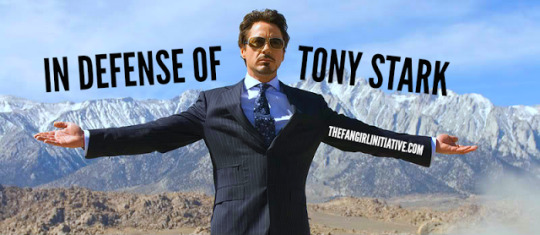
@thefangirlinitiative is a passion project of mine, and when civil war came out, i wrote a thing about how FREAKING MUCH i love tony. i know i have a lot of fellow tony stark defenders on tumblr (you guys are my faves), and i realized this article might resonate with you too. but at the same time, there might be some people wondering why tony stark is so important to me. so if you fall into either of those categories, here’s this!
#tony stark defense squad#tony stark#iron man#iron man 2#iron man 3#civil war#team iron man#tony stark deserves better#tony stark defense#tony stark has a heart#tonysarcreactor#fuckyeahtonystark#tonystarkdefenselegion#tony stark is not a villain#tonystarkdefensesquad#quillpete#ravingmadstark#personal#tfi#mine
28 notes
·
View notes
Photo

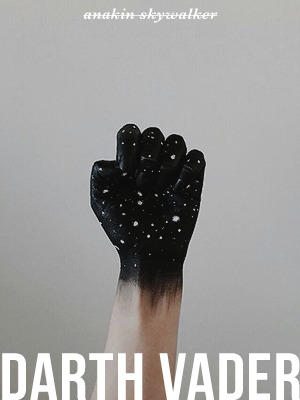

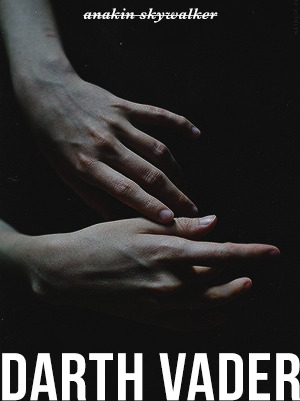
IF ONLY YOU KNEW THE POWER OF THE DARK SIDE.
#swedit#swnews*#theforcesource#dailyanakin#strwrsdaily#obwian#quillpete#bottomkirk#obiwaen#stripperanakin#useramilyn#imperialvader#darth vader#hazel does urls#*urls#sw: ot#*m
316 notes
·
View notes
Text
☆ detailed blogrates ☆
(aka help chris get to 1k!!)
i’m so so close to my next follower goal, the big one thousand my dudes, so i thought it’d be fun to try detailed blogrates out for the first time :)
rules
mbf this sad pinenut
reblog this post (likes are bookmarks)
send me your fave emoji + the movie you’re most looking forward in 2018, tell me about your day, rec me some music/podcasts, etc.
blacklist ‘get chris to 1k’ if you don’t want to see these
format under the cut
url:
do i get the reference?: no, sorry | maybe? | yes!
length: bit too short | perfect | bit too long
overall: good | superb | awesome | flawless | kira yukimura
icon:
do i get the reference?: yes! | maybe? | no, sorry
coloring: okay | lovely | excellent | perfection | leonard mccoy
clarity: okay | nice | amazing | flawless | spock
overall: great | pretty | incredible | a masterpiece | jim kirk
desktop theme:
format: not my style | good | awesome | flawless | tony stark
colors: not my style | great | pretty | love it | steve rogers
sidebar: not my style | lovely | excellent | perfection | valkyrie
updates tab: not my style | cool | beautiful | wowow | natasha romanoff
overall: okay | superb | awesome | gorgeous | t’challa
mobile theme:
colors: not my style | lovely | excellent | perfection | finn
title: don’t get it | good | awesome | flawless | poe dameron
header: not my style | pretty | incredible | a masterpiece | rose tico
overall: good | great | amazing | gorgeous | rey
posts:
my fandoms?: yes! | most | some | no
quality: okay | superb | fantastic | flawless | steve trevor
overall: okay | nice | excellent | perfection | diana prince
overall:
overall: meh | great | love it! | i wanna be you when i grow up | hermione granger
following?: no but ily | i wasn’t before?? | yuppp! | you’re stuck with me skyguy
#get chris to 1k#blogrates#things i've done#tagging mutuals who may be interested? (no pressure)#sauwuron#quillpete#userpatricia
41 notes
·
View notes
Photo
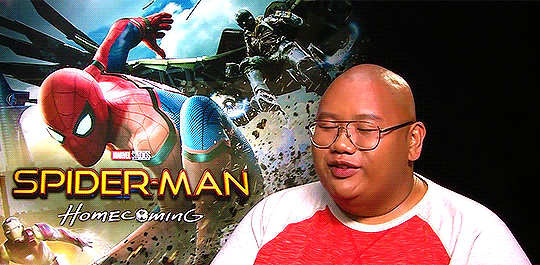

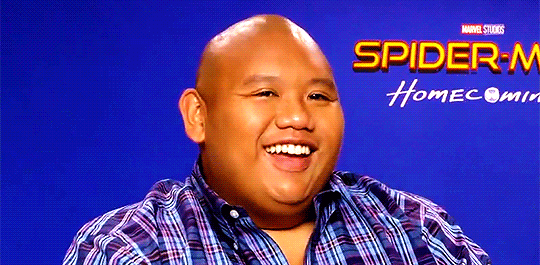
It must be nice to be in everything.
or a jacob batalon appreciation post just for @obwian
#jacobbatalonedit#marvelcastedit#spideycentral#spidermancastedit#marveledit#marveldaily#jacob batalon#obwian#ya fool#stripperanakin#quillpete#bottomkirk#delacourr#my edit#the last gif looks really grainy and ugly???#but this is already take two so i don't really care anymore#1k
3K notes
·
View notes
Photo

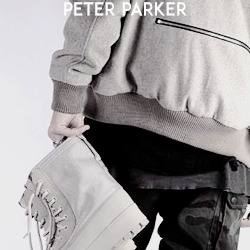




peter knows spider-man!
#spiderman#spiderman homecoming#marvel#marveledit#mcuedit#bimblebubblefam#spideycentral#nataliesroyalfamily#quillpete#parkerpete#observantmj#useraiden#theresistancenet#princessnatalie#chewbqcca#quidditchplayer#nargles squad#mine#poster#not hp#film#homecoming#aes#creations
1K notes
·
View notes